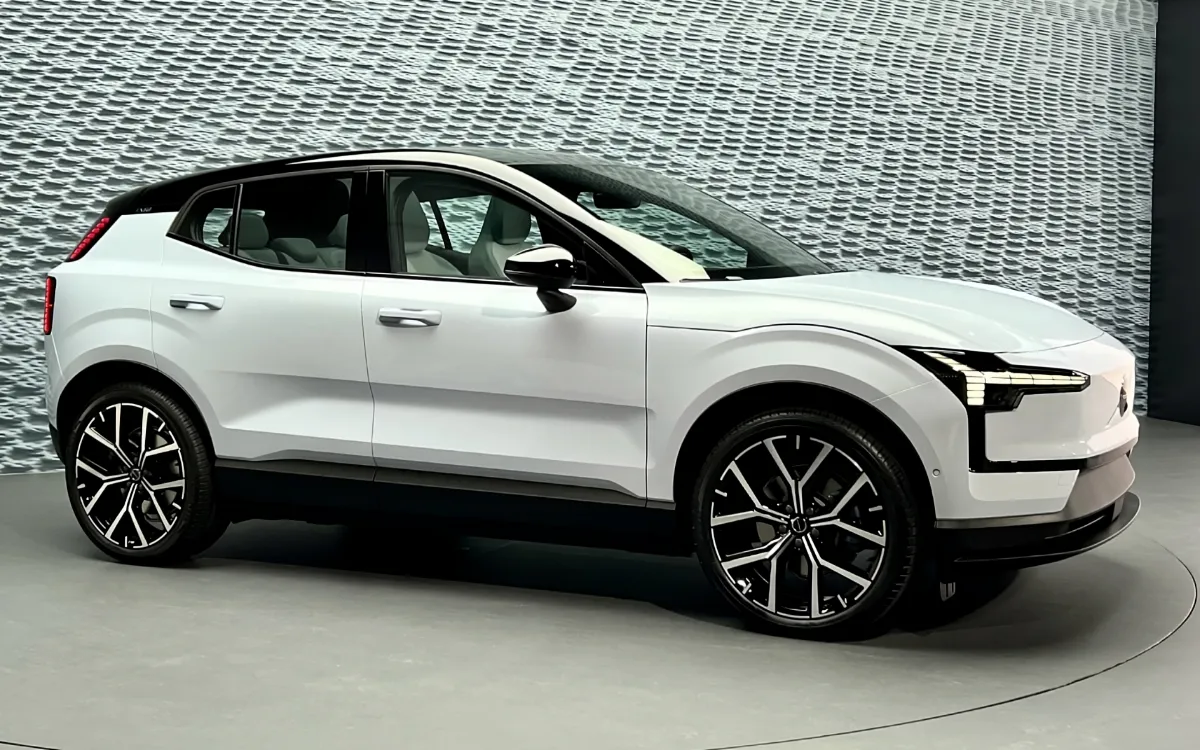IT to Empower Automotive Industry in 2025: Volvo Smartest Electric Car
The automotive industry is developing at an incredible pace. Manufacturers strive to make their cars not only faster and more reliable but also safer, more controllable, more functional, and smarter. The rapidly developing IT sphere, Artificial Intelligence, and the Internet of Things (IoT) provide enormous opportunities for the development of automobile transport. Many experts believe that delegating certain driving responsibilities to artificial intelligence will lead to safer roads, prevent numerous accidents, and decrease the number of fatalities involving humans.
Volvo is one of the manufacturers that has embarked on the path to creating smart cars. The new electric and hybrid models designed to alleviate the driver’s burden of managing multiple tasks while on the road, enhancing comfort during travel and minimizing potential risks. The Swedish automaker announced five new and updated models for 2025. The EX30 Cross Country subcompact electric crossover and the ES90 mid-size electric sedan are mentioned among the upcoming novelties, while the large ES90 sedan will be unveiled on March 5 2025. Car experts admit that this electric sedan will be the most advanced battery-powered Volvo in terms of computing power. The management promises that other EVs, like one of the long-awaited cars of 2025—the Volvo EX90—will also receive similar equipment over time.
Volvo ES90: the most advanced electric car
Volvo describes the ES90 sedan as a software-defined electric vehicle, meaning that a single computing unit will manage all its functions. For the first time in its electric lineup, Volvo has integrated two Nvidia Drive AGX Orin chips, each able to execute 508 trillion operations per second.
This unit will oversee a range of driver assistance features. The ES90 will introduce a new generation system, incorporating eight cameras, a lidar, five radars, and twelve ultrasonic sensors. Additionally, the electric EX90 will come with enhanced driver communication capabilities, although Volvo has yet to provide specific details.
The ES90’s design includes provisions for multiple enhancements, including over-the-air updates. The company promises that future software upgrades will enable the electric vehicle to gain new media features, enhance safety, and increase range through improved energy consumption management.
Built on the SPA2 platform, the ES90 utilizes Volvo’s proprietary modular Superset technology, similar to that used in the EX90 crossover. As a result, the innovations introduced in the Volvo sedan, including hardware advancements, are expected to be available for the crossover in the future.
New hybrid models
The Swedish auto giant is set to launch a long-range plug-in hybrid model this year. While details about the other two vehicles remain under wraps, they are likely to be updated versions of existing models, such as the Volvo S60 compact sedan and the XC60 crossover.
Additionally, the company has announced plans for three new models constructed on the SPA3 platform, with a new version of this architecture already in development. The first will be the EX60 compact crossover, expected to debut in 2026, and currently in the prototype phase. The other two models may include the compact electric sedan ES60 and its station wagon counterpart, tentatively named Volvo EV60.
If the ES90 serves as an eco-friendly alternative to the gasoline-powered S90, the wagon will compete in the same segment as the current EX60.
Regarding the existing SPA2 electric platform, it underpins the 2025 Volvo EX90 and will also support the ES90.
The original SPA platform debuted a decade ago with the flagship Volvo XC90 crossover and was designed for vehicles featuring traditional internal combustion engines as well as hybrid powertrains. These cars have already proven their reliability and are widely available in used car dealerships in differentUS states.

Leave a Reply